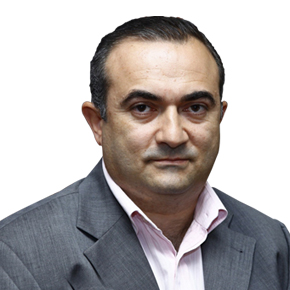Does the European Union (EU) provide sufficient reasons to the national governments of the Eastern Partnership (EaP) countries to implement reforms?
Nowadays the existence of a unified EU approach to Eastern Partnership countries may be questioned by the fact that six neighboring countries have different understandings of the European integration. Not all of them interpret the process similarly. They tend to prioritize the economic and political reforms on their agendas in their interpretations of the European integration. Such a situation leads to the fact that the “speed and direction” of the reforms in these countries are completely different. Therefore, the set of tools that the EU offers for establishing bilateral relations, can be regarded as the best "package" deal for one country , while for the other the same set is too unrealistic, far-fetched and unnecessary. The third may see it as potentially a Procrustean bed, which limits the potential for reform in the country.
Thus, could the prospect of European integration realistically motivate the EaP countries for reforms? What has to be done? How to change the existing EU instruments in order for the European integration to have a greater impact on reforms in these countries?
We think that today one of the main issues is that all the existing tools are too focused on the state authorities exclusively, and do not take into account the positions, interests and potential of the civil society organizations. This can partly be explained by the current internal prejudices and policies of the EU, and partly by an incomplete understanding of the political processes in countries such as Ukraine, Armenia, Moldova or Georgia. In order for the European integration to stimulate reforms more successfully, the European Union must learn how to work not only with the governments, which are not necessarily active reformers per se, but with civil societies, which can provide the necessary pressure for change, once they realize their direct interests in these reforms. Another problem is the inconsistency of the proposed EU instruments: for instance, the EU regards the governments as the primary implementers of reforms, whereas it turns to civil society organizations for the monitoring of the process. It seems that one is given certain roles and responsibilities, whereas the responsibility for accountability is given to another party.
Moreover, it appears that in many countries the European Neighborhood Programme (ENP) Action Plans are closed documents and delivered by the European Commission to the governments directly. However, Armenia has made its Action Plan public, though at this stage access to it is somewhat restricted. This means that civil society organizations involved in reform processes, for instance, facilitation of the visa regimes, will not be able to participate in any professional discussion on the process, or in the monitoring of its implementation. Failure to involve the civil society in the process of discussing and monitoring the implementation of the Action Plan reduces chances of its quick implementation.
To conclude, we need to agree that the potential of our external partners to stimulate reforms in our countries is rather limited. Our governments have learned how to imitate reforms in response to external pressure, meanwhile achieving minimal results. However, the EU may assist the reforms by using its existing tools through creation of internal demand for change which will be advocated by the civil society. To achieve this, there is a need to tune the existing instruments of the EaP so that they take into account the positions and interests of the civil society and target both the latter and the government.
Tevan Poghosyan is the Executive Director of International Center for Human Development (ICHD). These views are his own.






















Comments
Dear visitors, You can place your opinion on the material using your Facebook account. Please, be polite and follow our simple rules: you are not allowed to make off - topic comments, place advertisements, use abusive and filthy language. The editorial staff reserves the right to moderate and delete comments in case of breach of the rules.